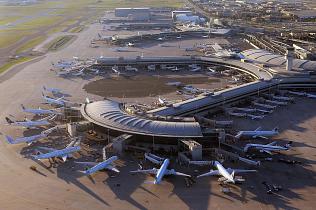Return of Canada's 'snowbirds' raises COVID-19 concerns
The return of the snowbird is a sign of spring in Canada — though this year, those returning from states with coronavirus cases are causing concern rather than celebration.
Hundreds of thousands of retired Canadians spend their winters in warm American climes, timing their return with the melt of the snow back home. Heightened concerns about the rapid spread of COVID-19 are prompting Canadian officials to openly question whether the travelers may bring home more than memories and souvenirs. It's unclear if border agents are prepared to manage their arrival or if the travelers know about the self-quarantine precautions they’re supposed to take when they get to Canada.
Many of those “snowbirds” live part of the year in Florida, which has seen a stark increase in the number of diagnoses and at least 141 positive cases of COVID-19, the illness caused by the novel coronavirus that’s spread across the globe. Those retirees are among the most vulnerable populations affected by the upper respiratory disease.
With rising concern about the outbreak, politicians and health officials are wondering aloud how they'll handle the influx as cases of the virus continue to rise in the country.
Ontario Chief Medical Officer David Williams said Monday that the province was “trying to get some direction from the federal government” on how to manage the snowbirds' return. “We’re seeing a number of Ontarians at least coming back in ever-increasing numbers,” he said. “Unfortunately, a number of them, after a few days, have been found to be positive from different parts of the USA.”
Alberta Premier Jason Kenney said Sunday he's instructed the province's tourism arm to redirect advertising toward Canadians, including snowbirds, to inform them of the new protocols upon arrival in the country from abroad.
Just as Prime Minister Justin Trudeau was appealing for Canadians abroad to return home as soon as possible, many of these older citizens were notified by their medical insurers that their coverage for COVID-19 will expire in the next week if they remain away.
Trudeau said Monday that anyone showing symptoms associated with the illness won't be permitted to board flights to Canada beginning Wednesday, adding another potential complication to anyone trying to leave the U.S.





